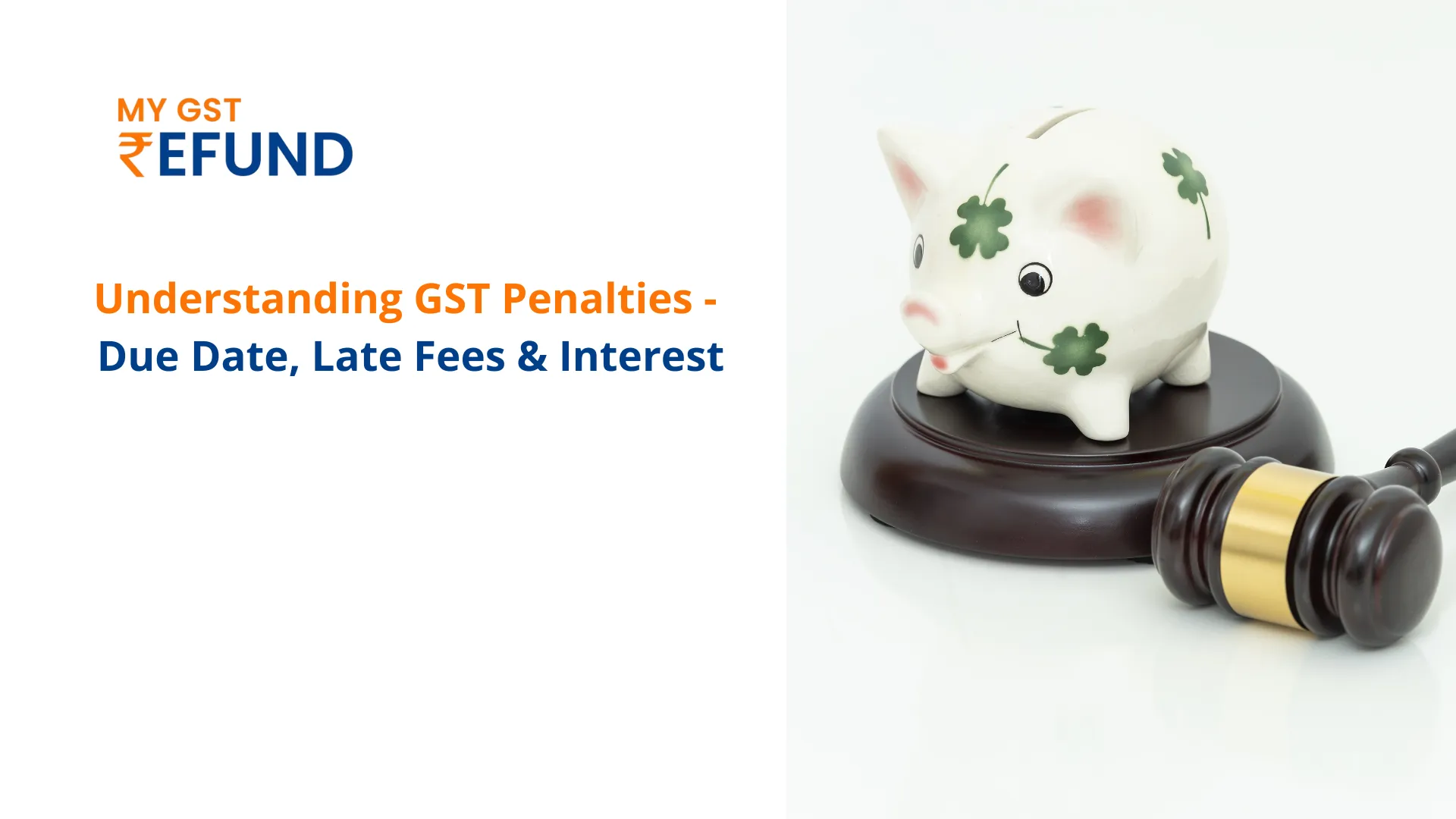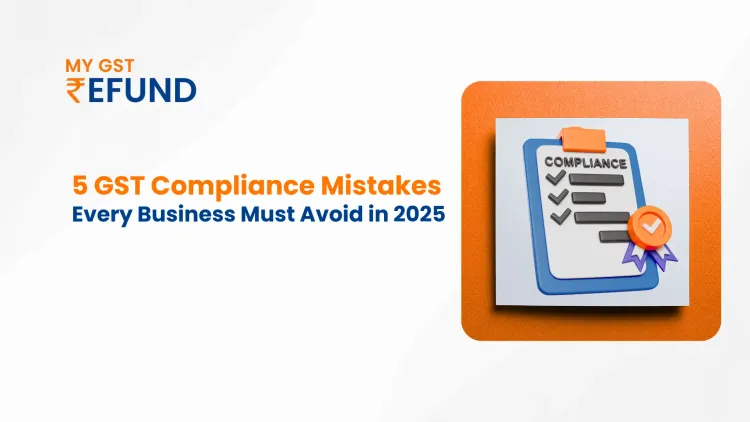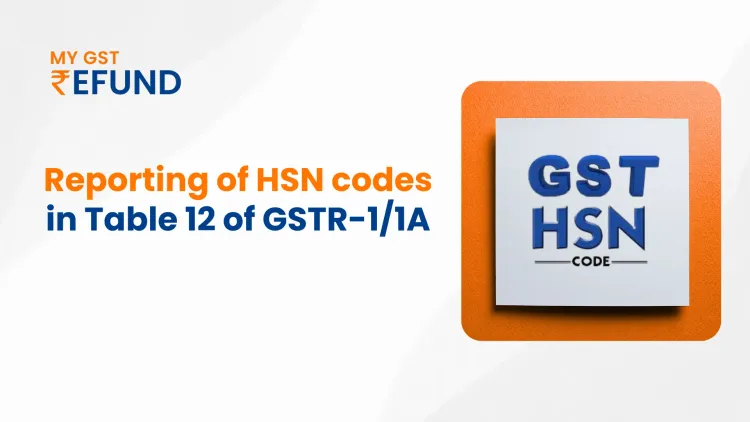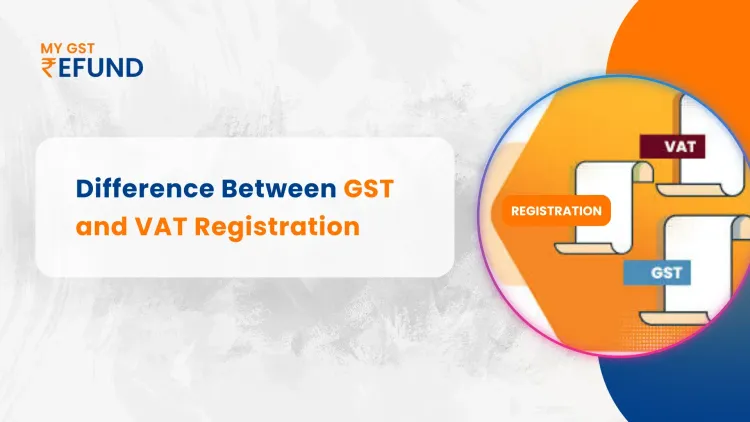Understanding GST Penalties - Due Date, Late Fees & Interest
Published on: Mon Dec 04 2023
The Goods and Services Tax (GST) has emerged as a key player in the tax framework of India since its establishment. Nonetheless, companies usually find it difficult to deal with GST system due to its complexities. A significant point that enterprises must note is the imposition of penalties for non-compliance, particularly GST late filing penalty. To evade these penalties and maintain conformity, timely submission of returns is critical in accordance with regulations provided by GST law.
GST penalties for late filing
Late filing or non-compliance of GST rules may lead to fines in terms of late fees and fines. The imposition of these penalties aims at ensuring that the businesses comply with the timelines and requirements prescribed under GST law.
GST Penalty for Late Payment
GST Penalty for Late Payment imposed on late filing of GST returns. Usually, the amount of late fee is given daily basis per day, which can vary according to certain things like type of return or taxpayers turnover.
Penalties
GST regulations are subject to serious non-compliance penalties. There are cases pertaining to fraud, tax aversion or intentional negligence concerning GST rules.
Late fees penalties apply where the taxpayers are late in filing their GST returns. The late fee is computed as follows:
For returns having tax liability: Rs. 50 for every day that passes after the due date up to Rs 10,000 for each return.For nil returns: Rs. 20 for every day that passes after the due date up to Rs 1,000 for each return.Additionally, there is an interest charged at the rate of 18% per annum for delayed payment of GST starting from its due date until it is paid.
GST Penalties waiver
The GST Act provides provisions for waiving penalties in certain circumstances. The Commissioner may waive penalties if the taxpayer satisfies the following conditions:
- The taxpayer has a clean track record of tax compliance.
- The delay in filing the return or payment of tax was due to genuine reasons beyond the taxpayer's control.
- The taxpayer has filed the return or made the payment within a reasonable time after the genuine reasons ceased to exist.
GST Penalties under section 74
Section 74 of the GST Act empowers the Commissioner to impose penalties for various offences, including:
- Suppressing facts or furnishing false information in any return, statement, or document.
- Obstruction of any officer in the discharge of his duties.
- Non-compliance with any summons, requisition, or order issued by the Commissioner.The penalties under Section 74 can range from ₹250 to ₹50,000, depending on the severity of the offence.
GST Penalties calculator
Several online GST penalties calculators are available to help taxpayers estimate the late fees and interest they may be liable for. These GST calculators typically require the taxpayer to enter the due date of the return, the date of filing, and the tax liability.
The online GST penalty Calculator is also a possibility by following these steps:
- Type of return: GSTR-3B, GSTR-9 or GSTR-9A.
- State: Your business state
- Turnover category:Your previous financial years business turnover Due date: The return filing due date Date of filing: The day when you filed that GST return Tax liability: The total tax amount payable
The calculator will now calculate your late fees and interests based on the provided details. But please bear in mind that this is only an approximation; thus, it may be different according to your case's unique features.
GST Penalties per day
The late fee for delayed filing of GST returns is calculated on a per-day basis. For returns with tax liability, the late fee is ₹50 per day, while for nil returns, it is ₹20 per day.
GST Penalties rules
The Goods and Services Tax (Penalties) Rules, 2017, are a set of rules framed by the Central Government to specify the procedures and manner of imposing penalties under the GST Act. These rules provide detailed guidelines on various aspects of GST penalties, including:
- Types of offences: The rules define various offences that can attract penalties under the GST Act, such as late filing of returns, suppression of facts, and obstruction of officers.
- Assessment of penalties: The rules specify the procedure for assessing penalties, including the issuance of show-cause notices and the consideration of mitigating factors.
- Payment of penalties: The rules outline the methods for paying penalties, including online payment through the GST portal and payment by challan at designated banks.
- Waiver of penalties: The rules provide for the waiver of penalties in certain circumstances, such as genuine reasons for delay in compliance.
- GST Penalties section: The provisions relating to GST penalties are primarily contained in Section 73 and Section 74 of the GST Act.
- GST Penalties payment:GST penalties can be paid online through the GST portal or by challan at designated banks.
Online Payments:
Using your information to log in to GST portal.
- Click on ‘Services’ tab then select ‘Payment’.
- Select ‘Create Challan’ and choose ‘Penalty’ from the menu that drops down.
- Provide necessary details like type of penalty, tax period, and how much is payable.
- Select ‘Net Banking’ or ‘Debit Card/Credit Card’ as your mode of Payment.
- Make payment before confirming the transaction.
Payment through Challan:
- The challan form can be downloaded from the GST portal.
- Fill it with required information like GSTIN, tax period type of penalty among others going so far as amount that have to be paid.
- Take this Challan form with you to respective bank in order to pay for it afterward Get a receipt from the bank which you need to preserve for future references.
GST Penalties for late filing
GST Penalties for late filing are imposed on taxpayers who fail to file their GST returns by the due date. The late fee is calculated on a per-day basis and increases with the number of days of delay.
Late Fee for GSTR-3B:
₹50 per day for each day of delay Maximum penalty of ₹10,000 per return
Late Fee for GSTR-1:
₹20 per day for each day of delay Maximum penalty of ₹1,000 per return
Late Fee for GSTR-9:
₹100 per day for each day of delay Maximum penalty of ₹5,000 per return
Interest:
Interest is charged on late payment of GST at the rate of 18% per annum from the due date until the date of payment.
GST Penalties waiver letter sample
In cases where a waiver is sought, a well-drafted letter can make a difference. A sample GST penalties waiver letter may include details such as the reason for the delay, steps taken for rectification, and a commitment to future compliance.
Conclusion:
For the purpose of avoiding GST late filing penalty that are not needed and to ensure that there is compliance by the companies, it is useful to have a guide to navigate through these complex GST regulations. One should remind themselves on how important it is to adhere filing deadlines by taking into consideration the GST penalty structure for late filings. Through timely filing of returns, GST prevents financial penalties besides ensuring their smooth operational processes within the businesses. Businesses can reduce risks related to late return submissions and maintain ongoing compliance with GST laws by keeping themselves updated on compliance tools available for them.
Also Read: GSTR-3B Guide: Return Filing, Format, Revision and Due Dates
Related Posts





